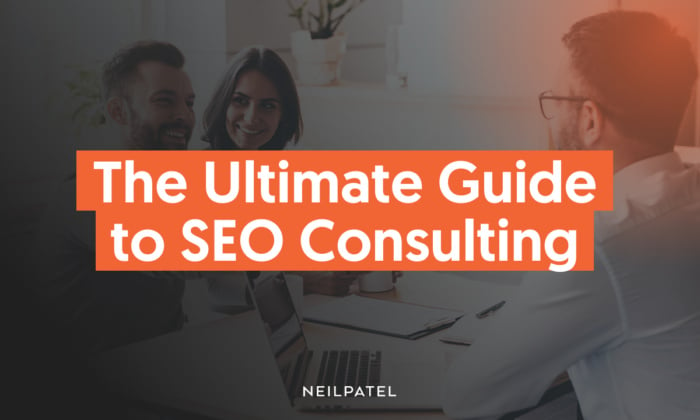The Simple Guide to SEO for Real Estate Agents focuses on optimizing online content to attract more clients. Essential strategies involve keyword research and high-quality, localized website content.
Real estate agents looking to thrive in the competitive online market must understand the importance of search engine optimization (SEO). Optimizing your online presence boosts visibility to potential clients searching for properties or real estate services in your area. A real estate-specific SEO strategy enhances your website’s rankings on search engines like Google, making it easier for homebuyers and sellers to find you.
Begin by identifying the right keywords that potential clients are using and incorporate them into your website content, listings, and blog posts. It’s also critical to ensure that your website is mobile-friendly and loads quickly to provide an excellent user experience. Building a solid internal linking structure and garnering high-quality external links can further improve your SEO performance. The combination of these elements creates a strong foundation for increasing your digital footprint and reaching your target audience effectively.
Understanding The Importance Of Seo For Real Estate Agents
Welcome to the vital world of Search Engine Optimization (SEO) for real estate agents. In an industry where visibility is key to closing deals, understanding and leveraging the power of SEO becomes non-negotiable. The digital era has revolutionized the way properties are bought and sold, making an online presence an essential component of a real estate agent’s toolkit. The journey to topping search engine result pages starts with grasping the significance of SEO and its direct impact on your real estate business’s success and growth.
The Role Of Seo In Real Estate
SEO is a powerhouse that drives potential homebuyers to an agent’s listings and services. With the majority of property searches commencing online, optimizing a real estate website for search engines is paramount. Its vital for agents to aim for a top search ranking to ensure visibility to those who are actively searching for real estate opportunities in their area.
Implementing sound SEO practices means your website will be indexed and ranked effectively by search engines like Google. This ranking determines how easily potential buyers and sellers can find your services among thousands of online competitors. An agent’s website showing up on the first page of search results is akin to a 24/7 digital billboard on the busiest street in town.
Benefits Of Seo For Real Estate Agents
- Increased Traffic: Proper SEO helps boost organic traffic, driving more potential clients to an agent’s website.
- Better User Experience: SEO isn’t just about pleasing search engines; it’s about providing a better user experience through fast-loading pages, mobile-friendly design, and helpful content.
- Higher Conversion Rates: SEO-optimized websites load faster, are easy to read, and display well on all types of devices, which can enhance the likelihood of visitors engaging with your content and services.
- Brand Awareness: Ranking high in search results contributes to brand exposure; the more often your website appears at the top, the more recognizable your brand becomes.
For real estate agents, the implications of SEO extend beyond mere rankings. It’s about establishing a robust online presence that builds trust, engages with the target audience, and ultimately converts leads into successful sales transactions.
Keyword Research And Implementation
For real estate agents, the journey to online visibility begins with a critical step: keyword research and implementation. This stage sets the foundation for how potential clients will find your listings and services through search engines. The goal is to identify the search terms and phrases your target audience is using, then strategically incorporate these keywords into your website content. From the bustling city center hubs to serene suburban communities, every search query represents a unique opportunity to connect with prospective buyers and sellers.
Identifying Relevant Keywords For Real Estate
Identifying the most relevant and effective keywords is an art form itself. It requires understanding not just your market, but also the search habits of your audience. To begin, list out the core terms that are foundational to your business, such as “homes for sale” or “real estate agent” coupled with your location. Next, utilize keyword research tools to expand this list by discovering related terms and phrases, as well as their search volumes and competitiveness.
With the right tools, you can generate a comprehensive list of keywords, which typically includes:
- Primary keywords that define your main services (e.g., ‘condo for sale in Miami’).
- Long-tail keywords, which are extended phrases often linked to more specific queries (e.g., ‘affordable waterfront homes in Miami’).
- Local keywords that connect your services to a geographical area, which are vital for local SEO (e.g., ‘Miami real estate agents’).
- Seasonal or trend-based keywords that can capture timely interest (e.g., ‘real estate market trends 2023’).
How To Incorporate Keywords Into Website Content
Once your keyword list is established, the next step is integration into your website’s content. Keywords should appear in crucial on-site elements like titles, headings, meta descriptions, and alt text of images, as they signal relevance to search engines. However, it’s essential to maintain a natural flow within the text. Here’s how you can tactfully infuse keywords:
| Webpage Element | Keyword Incorporation |
|---|---|
| Title Tags | Start your title with the primary keyword when possible, and keep it concise. |
| Meta Descriptions | Include primary and secondary keywords while describing the page’s content enticingly. |
| Header Tags (H1, H2, H3…) | Use header tags to structure your content with keywords used contextually in headings. |
| Content Body | Spread keywords throughout your text naturally, avoiding keyword stuffing. |
| Alt Text for Images | Incorporate keywords into the alt text to describe images, which can increase image search visibility. |
| URLs | Create SEO-friendly URLs by including keywords that mirror the page’s primary focus. |
Remember that keyword implementation is not about saturating your content with as many keywords as possible; rather, it’s about strategically placing them where they matter most. Quality content infused with the right keywords helps to ensure that search engines—and more importantly, your audience—find and value your site.
On-page Optimization For Real Estate Websites
On-page SEO is crucial for real estate professionals seeking to enhance their online visibility in a competitive market. A polished, well-optimized website not only captivates potential clients but also signals to search engines the relevance and value of your content. By refining various elements such as meta tags, URLs, and linking strategies, real estate agents can effectively communicate their message and climb higher up the search rankings.
Optimizing Meta Titles And Descriptions
Your website’s meta titles and descriptions serve as your digital first impression in the search engine results pages (SERPs). These critical HTML elements can determine whether a potential client clicks through to your site or scrolls past. An optimized title tag should be concise, relevant, and contain your primary keyword, ideally placed at the beginning. Similarly, a compelling meta description must encapsulate the essence of the page’s content, utilizing a secondary keyword if possible and maintaining a length of 150-160 characters.
- Meta Title Best Practices: Include the property type and location, keep titles under 60 characters, and use pipes or dashes to separate elements.
- Meta Description Tips: Feature persuasive messaging that includes a call to action and ensures every page has a unique description.
Creating Seo-friendly Urls And Internal Linking
URL structure and internal linking are pivotal components that bolster your on-page SEO efforts. Clean, descriptive URLs not only provide search engines with clarity on a page’s content but also enhance the user experience. Preserve brevity, use hyphens to separate words, and incorporate a targeted keyword. For maximum impact, maintain a logical, hierarchical URL structure that mirrors your site’s organization.
Furthermore, internal linking cements the navigational pathways within your site. By linking relevant pages to one another, you can distribute page authority, improve user engagement, and guide visitors smoothly from initial curiosity to actionable decisions. Pay close attention to anchor text—ensure it’s descriptive and varied yet focused on the page’s primary topics.
| URL Best Practices | Internal Linking Strategies |
|---|---|
| Use short, readable URLs with keywords | Link to high-authority pages to boost relevance |
| Maintain a clear, consistent URL structure | Utilize descriptive anchor texts for links |
| Avoid excessive parameters and numbers | Ensure links contribute to a coherent site architecture |

Credit: neilpatel.com
Off-page Seo Strategies For Real Estate Agents
For real estate agents looking to expand their online visibility, crafting a robust off-page SEO strategy is crucial. Off-page SEO refers to all the actions taken outside of your own website to impact your rankings within search engine results pages (SERPs). It’s about bolstering your site’s perception of popularity, relevance, trustworthiness, and authority. This strategy largely revolves around building backlinks but also extends to social media presence and other external signals. Below, we delve into key off-page SEO tactics that real estate professionals can employ to enhance their digital footprint and captivate potential clients.
Building backlinks through local directoriesBuilding Backlinks Through Local Directories
A solid backlink profile is an essential asset for any real estate website. Quality backlinks from reputable sites signal to search engines that your content is valuable and credible. Real estate agents can gain these valuable links by listing their business on local directories. These are not just any directories, but those relevant to the real estate industry and local businesses. Below are steps to optimize directory listings:
- Research and identify the most influential real estate and local business directories.
- Create a compelling profile that includes a business description, contact information, and a link back to your website.
- Ensure consistency of your NAP (Name, Address, Phone number) across all listings.
- Encourage reviews from past clients to enhance credibility and attract more leads.
By securing listings on directories like Zillow, Realtor.com, and local Chamber of Commerce sites, you can strengthen your backlink profile and improve your local SEO presence.
Leveraging social media for SEOLeveraging Social Media For Seo
Social media platforms are more than just channels for engaging with your audience; they’re also powerful tools for enhancing your SEO efforts. While the direct link between social signals and rankings may be a topic of debate, there’s no doubt that a strong social media presence can drive traffic to your website and elevate your brand’s visibility. Here are methods to utilize social media for off-page SEO:
- Share valuable content that resonates with your target audience, such as market trends, home buying tips, and featured listings.
- Use hashtags strategically to increase the reach of your posts and appear in relevant searches.
- Engage with your followers by responding to comments, messages, and reviews to foster a sense of community.
- Collaborate with influencers and local businesses to cross-promote and tap into new networks.
Platforms like Facebook, Instagram, LinkedIn, and Twitter offer unique ways to connect with potential clients. By maintaining an active and strategic social media presence, real estate agents can drive more traffic to their sites and indirectly improve their search engine rankings.
Measuring And Tracking Seo Success In Real Estate
Real estate agents recognize the immense value of a strong online presence in today’s digitally driven market. However, developing a website is just the start. To truly excel, it is crucial to track the success of your SEO strategies meticulously. In the dynamic world of real estate, measuring and tracking SEO success is not only about confirming that your tactics are working, but also about refining your approach for sustained growth and visibility amongst prospective clients. Let’s delve into how analytics tools and key performance indicators can serve as your compass on the journey to SEO triumph.
Utilizing Analytics Tools To Measure Seo Performance
- Install Google Analytics to monitor website traffic and user behavior.
- Use Google Search Console to understand your site’s search performance and health.
- Consider SEO-specific platforms like SEMrush or Ahrefs for detailed insights and competitor analysis.
With these tools, you can identify which keywords are driving traffic, what pages are most popular, and where your site might be falling short. They offer robust reporting features that allow you to track organic search performance over time and make data-driven decisions.
Key Performance Indicators For Real Estate Seo Success
Tracking the right metrics is essential for evaluating the effectiveness of your real estate SEO strategy. Here are several key performance indicators (KPIs) to keep an eye on:
| KPI | Why It Matters |
|---|---|
| Organic Sessions | Indicates the number of users who find your website via search engines. |
| Bounce Rate | Shows the percentage of visitors who leave after viewing only one page, hinting at engagement levels. |
| Conversion Rate | Measures the percentage of visitors who take a desired action, such as filling out a contact form. |
| Keyword Rankings | Tracks the search engine positions for targeted keywords pertinent to your real estate niche. |
| Page Load Time | A crucial factor for both SEO and user experience, indicating the speed at which your pages load. |
| Backlink Profile | The quantity and quality of external sites linking to yours, boosting credibility and reach. |
Regular monitoring of these KPIs enables real estate agents to identify strengths, uncover opportunities, and initiate corrective measures for any SEO deficiencies. Utilizing this data effectively can significantly enhance online visibility and attract more potential buyers and sellers to your real estate business.
Frequently Asked Questions For The Simple Guide To Seo For Real Estate Agents
What Are Top Seo Strategies For Realtors?
Effective SEO strategies for realtors include localized keyword optimization, consistent business citations, and high-quality content creation. Leveraging Google My Business and accumulating online reviews are also critical. These strategies improve visibility in local search results.
How Does Seo Benefit Real Estate Agents?
SEO benefits real estate agents by enhancing their online presence, increasing website traffic, and generating more qualified leads. It helps build trust with potential clients by showcasing expertise and properties through elevated search engine rankings.
What Keywords Should Realtors Focus On?
Realtors should focus on geo-targeted keywords, property-related terms, and neighborhood-specific phrases. Example keywords include “homes for sale in [Location],” “real estate agent in [Location],” or “[Neighborhood] property listings. “
Can Blogging Improve Real Estate Seo?
Blogging can significantly improve real estate SEO. It provides valuable, fresh content for search engines and helps target long-tail keywords. Blogs can also establish authority and gather backlinks, boosting search engine rankings.
Conclusion
Navigating SEO as a real estate agent can seem complex, yet it’s essential for online success. Embrace these strategies for improved visibility and lead generation. Remember, consistency is key. Apply these tips regularly to climb search rankings and reach potential clients effectively.
Start optimizing today for a brighter digital tomorrow.







Very interesting information!Perfect just what I was searching for!Expand blog
I just could not leave your web site before suggesting that I really enjoyed the standard information a person supply to your visitors Is gonna be again steadily in order to check up on new posts
I just could not depart your web site prior to suggesting that I really loved the usual info an individual supply in your visitors Is gonna be back regularly to check up on new posts